We explain what Greek mythology is and its main gods and heroes. Also, what are its general characteristics and importance.
What is Greek mythology?
A vast and complex network of stories, myths and legends belonging to the religion of Ancient Greece (1200 BC - 146 BC) is known as Greek mythology . They have continued to be part of Western culture until our time through a set of literary , philosophical and religious texts , statues, vessels and painted ceramics.
These stories were initially transmitted orally from generation to generation , but later they were collected in texts of a poetic nature that today we know as ancient Greek literature . Its study is a subject of interest for various disciplines, from literature and philosophy , to history , anthropology and psychoanalysis.
It should be noted that Greek mythology collected numerous traditional and religious elements from Ancient Greece, but it was also understood as fiction by many of the ancient philosophers , such as Plato (5th-4th centuries BC). In any case, it could be considered a valuable source of teachings and allegorical stories, just as it is today for us.
Origin of Greek Mythology
Greek mythology is heir to complex historical processes of fusion .
This is due to the conquest of the first settlers of the Balkans.
They formed an agricultural and animistic people , that is, they assigned deities to natural phenomena.
These beliefs were added to those brought by other tribes who came from the north and imposed the cult of their gods.
The latter represented force , war and heroism .
This substrate crystallized in the archaic period of Ancient Greece (8th-6th centuries BC), when writing was used again . At that time the Greek polis was formed, a particular form of political organization in which myths played an important foundational and religious role.
Later the epic poets appeared . Thanks to them, the diverse set of traditions and stories obtained an organicity that it originally did not have, thus founding what we now understand as Greek mythology.
Three epochs
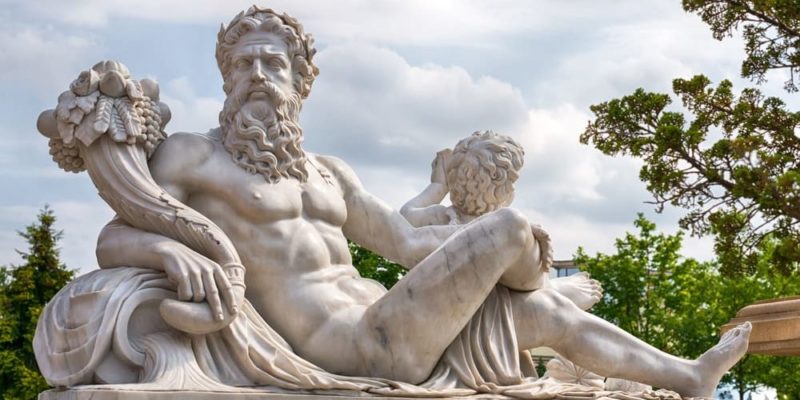
Greek mythology, like many other similar traditions, can be structured in three cycles of stories:
- The age of the gods . Myths about the origin of the world, the birth of the gods and their distribution of dominions. Theogonies and cosmogony belong to this period.
- The age of coexistence between gods and men. Myths and stories about the cooperation, love and antagonism between gods, demigods and mortal men.
- The age of heroes . Myths and stories in which the gods play a more limited role, giving prominence to mortals and especially to their champions, mythical heroes. The accounts of the Trojan War cycle are from this period.
Main gods of Greek mythology
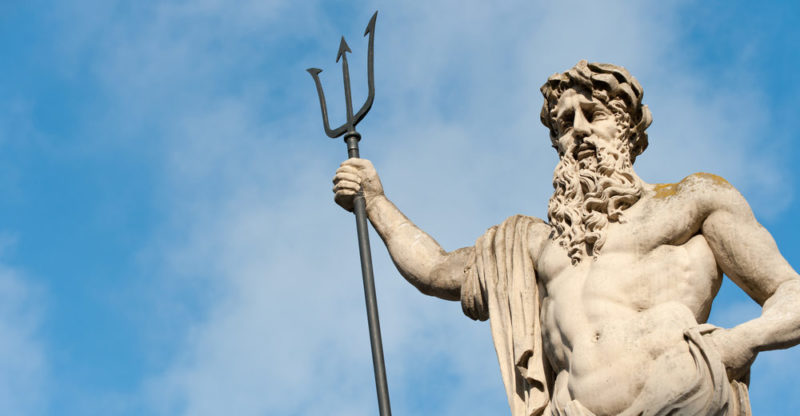
The Greek religion was pantheistic, and it had a huge pantheon of deities to worship . The most important formed the pantheon of the Olympian gods, the second generation of gods that previously defeated the Titans (more primitive gods).
The main of them are:
- Zeus. The father god, owner of lightning and the heavens, who led the Olympians from his throne. He is a god who liked to engender human race in those mortals and demigoddesses with whom he fell in love. He was married to Hera and his brothers were Hades and Poseidon.
- Hera. Goddess of the home and maternal rights, wife of Zeus and therefore immediate antagonist of his illegitimate children, among whom were many heroes, such as Hercules or Heracles.
- Poseidon. Regent god of the marine world , he was represented with a trident in his hand. From his underwater throne he ruled the waters of the world and could give sailors a good or bad trip.
- Aphrodite. Goddess of beauty and passion, she was the sister of Zeus and the wife of Hephaestus, whom she deceived with Ares and numerous mortals. His birth is attributed to the spilling of the semen of Cronos, father of the Titans, on the waters of the sea, when Zeus castrated him and conquered him forever.
- Apollo. Solar God , protector of parental rights, inventor of music (he was represented with a lyre) and of prophecy. He was twin brother of Artemis, children of Zeus and Leto.
- Sagebrush. Huntress goddess, virginal and lunar, with an affinity for wild animals and virgin terrain. She is depicted with a quiver full of arrows and often a deer and a cypress.
- Ares. God of war and violence, son of Zeus and Hera, was associated with masculine virility and heroism, bravery in battle and armies.
Main heroes of Greek mythology
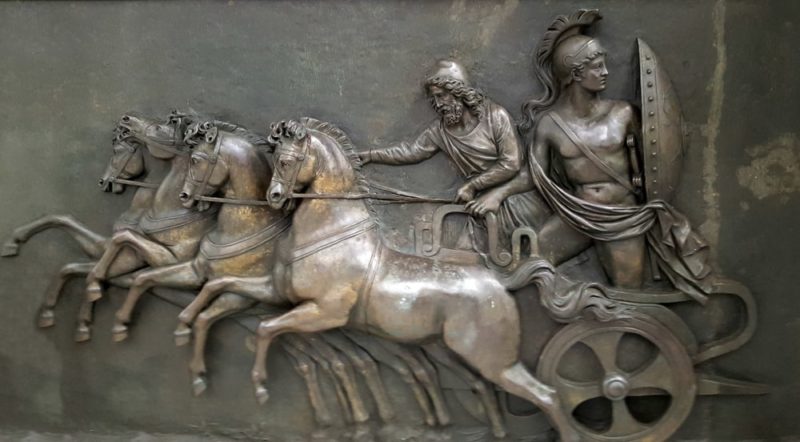
Greek heroes were generally exemplary of virtues and participated in incredible feats. Usually its origin was divine. They stand out from them:
- Achilles. King of the Myrmidons, son of Peleus and the nymph Thetis, he was invulnerable except for his heels, his only weak point. He marched to the Trojan War along with the other Greek kings knowing, by maternal prophecy, that death and fame awaited him on the battlefield.
- Odysseus. Protagonist of the epic poem Odyssey , he is the most ingenious and shrewd of the Greek heroes who embarked on the Trojan War. He was the one who devised the strategy to defeat and loot the city , giving Greece the advantage . On his return to Ithaca, where he was king, he lost his crew and his ship and wandered for 10 years in the Mediterranean .
- Theseus. King of Athens, of divine descent, to whom many feats are attributed, the most important being the liberation of the island of Crete from the Minotaur: a mythological being half man and half bull. The monster devoured its heroes and virgin maidens, dwelling in the heart of a labyrinth. Theseus defeated the beast and returned out of the labyrinth guided by the thread that the princess Ariadne gave him, and then he married her.
- Heracles. Illegitimate son of Zeus and Queen Alcmena, he was hated from birth by Hera, who subjected him to numerous jobs. Those almost impossible jobs included defeating the Lion of Nemea, the Hydra of Lemnos, the Cerberus of Hell, among others.
In what books is Greek mythology narrated?
Greek mythology continues to spread in books and movies. However, the oldest texts from which our knowledge of the subject comes are:
- Mythological Library of Pseudo-Apodoloro, where he tries to give a unified vision of the contradictions of the original myths.
- Iliad and Odyssey , epic songs attributed to Homer.
- Theogony and The works and days of Hesiod, where he tells the beginning of everything and talks about agriculture, respectively.
- The work of Greek lyrical poets such as Pindar, Baquílides, Simónides and the bucolic ones such as Theocritus and Bión.
- The tragic work of the Greek playwrights : Aeschylus, Sophocles and Euripides, as well as the comedies of Aristophanes.
- The work of the Greek historians Herodotus, Diodorus Siculus and the geographers Pausanias and Strabo.
The origin of the world
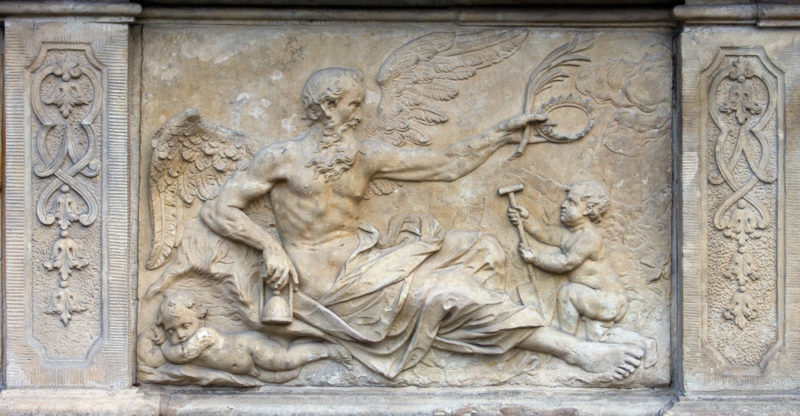
According to Greek mythology, the world was created by three divine powers: Chaos ("the void"), Gaia ("the earth") and Eros ("the renewal") . Uranus, comparable to heaven, was the son and husband of Gaea. Gaia and Uranus were the parents of the first gods: the Titans, commanded by Cronos, as well as three Cyclops and three Hecatonchires.
This first generation of gods reigned, after Cronos castrated his father and married Rea , his sister. To prevent his own son from dethroning him, Cronos devoured the barely born children of Rhea's womb.
However, when Zeus was born, his mother tricked Cronos by giving them a stone instead. When Zeus grew up, he defeated the Titans and imposed the Olympic order.
The Trojan War
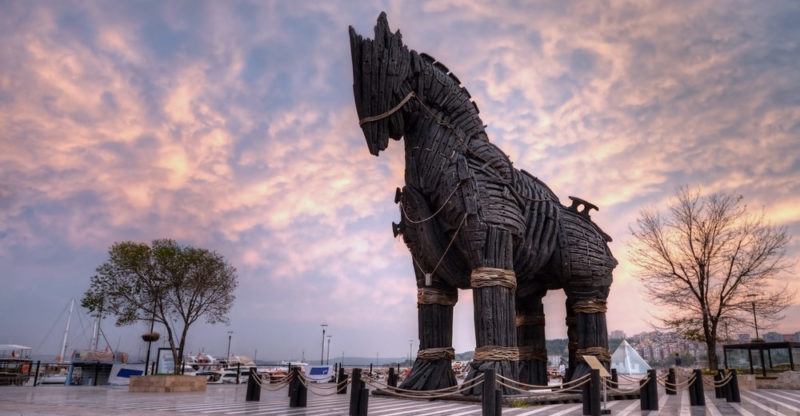
One of the most important cycles in Greek mythology is the one that tells of the siege and looting of the Anatolian city of Troy. It was besieged by a coalition of Greek kings , under the excuse of recovering Helena, the most beautiful woman in the world.
This confrontation involved many of the classical Greek heroes , as well as the gods who took sides on one side or the other. These events are narrated in the Iliad and many previous or later episodes in the tragedies of Aeschylus, Sophocles, and Euripides.
Roman mythology
The Greeks fell to the Roman hosts in the 2nd century BC. C. , and its cities were occupied by the invaders. Marveling at the enormous cultural and philosophical wealth of those invaded, they assimilated their religion as their own.
They gave the gods and heroes new names , but they kept their meaning. Thus were born Jupiter (Zeus), Saturn (Cronos), Venus (Aphrodite), Ulysses (Odysseus), etc.
Why is Greek mythology still important?
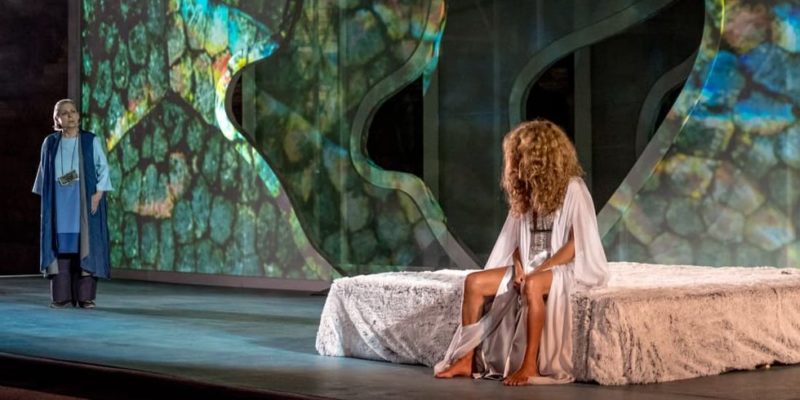
Greek mythology plays a fundamental role in shaping the Western imagination . It is represented in one of the richest and most complex literary traditions in the world. The archetypes attributed by the Greeks to their gods, survive in many different ways in our culture , reconverted and mixed with other cultural sources.
The gods and heroes face conflicts related to universal themes such as pride, betrayal or justice. That is why even today the works that tell their stories continue to be performed . Some of these stories were even used by psychoanalysis to explain our way of behaving today.
Later versions
During the Renaissance , Greek mythology was a profuse source of inspiration for painters and sculptors , as an escape from medieval Christianity . Later, many modern works of art discussed or reinterpreted Greek myths, especially tragedies such as Oedipus the King or Antigone .
The above content published at Collaborative Research Group is for informational and educational purposes only and has been developed by referring reliable sources and recommendations from experts. We do not have any contact with official entities nor do we intend to replace the information that they emit.
Abubakr Conner brings a diverse skill set to our team, and covers everything from analysis to the culture of food and drink. He Believes: "Education is the most powerful weapon that exists to change the world." .
Leave a reply
Your email address will not be published. Required fields are marked *Recent post

Sport: What Is It, Types, Risks, Features, Characteristics and Examples

Dogs: Emergence, Features, Characteristics, Feeding and Breeds

Story: Definition, Elements, Structure, Features and Characteristics

